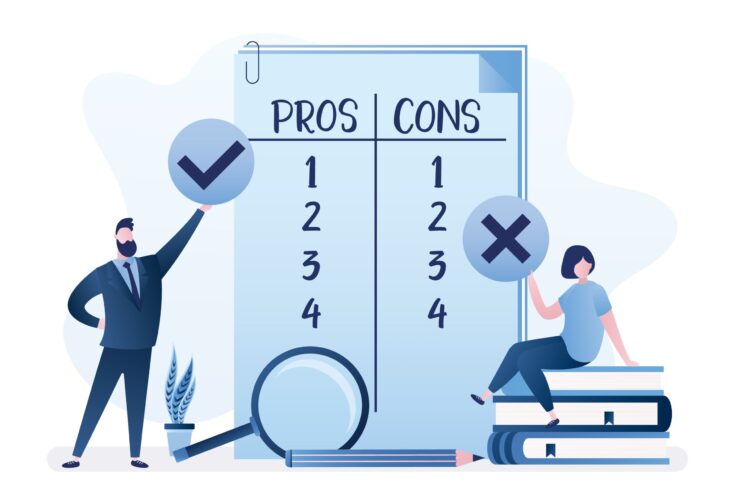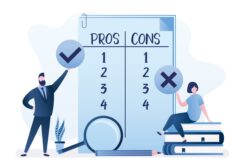When Mary in metro Atlanta decided she was going to file for divorce, she reached out to some friends who were recently divorced to find out which attorneys they would recommend.
“Some told me this is who I’d recommend, this is who I hired and then fired, and this is who I didn’t have a good experience with,” Mary said. So she felt like she had a good place to start.
She researched each of the attorneys to see their experience and background, and Googled what she should ask when consulting with them.
“Most people are going through a divorce for the first time and are reluctant to ask questions,” Mary said. “I had so little control during the marriage that I needed control while ending it.”
She narrowed down her search and ended up having consultations with four divorce attorneys, including one she met at a divorce bootcamp. The first three gave free 30-minute consultations, while the one she chose charged a fee for that first 90-minute in-depth discussion.
Before hiring a divorce attorney, do your research
Like Mary, many people start by asking others for attorney suggestions. Then they turn to online research.
“I think it is important to ask people who have worked with an attorney to get a ‘feel’ for how they really present,“ said Diane Paull, a divorce and child support attorney in Jacksonville Beach, Florida, who has specialized in family law for about two decades.
Look at reviews and comments online, but know that some companies sell rankings and reviews to lawyers. Check the attorney’s rating with Martindale-Hubbell, a respected group that has offered peer-reviewed attorney ratings for more than 130 years. Look for the “AV” rating, which is the highest peer-reviewed rating and is based on legal expertise, communication skills, and ethical standards.
Google the attorneys you are considering and check out their websites so you can see how long they’ve been practicing, understand their specialty and experience, and learn more about their firms.
You may also want to consult legal organizations for attorneys. There’s the American Academy of Matrimonial Lawyers (AAML), where you search for family lawyers by location. The American Bar Association’s Section of Family Law also lists attorneys who practice in family law.
What to consider when hiring a divorce attorney
An attorney should have significant experience in family law. Paull suggests confirming they’ve been in the field for at least 10 years, but they also should be experienced with the judges and other attorneys in the area.
“Cases change dramatically based on the judge and the opposing counsel; an attorney familiar with the other players, a regular in that court, if you will, is very helpful for good advice on what steps to take, settlements that may be offered, etc.,” she said. Attorneys from other counties can be at a disadvantage because local attorneys are more familiar with the court.
Consider the size of the practice. With a large practice, other employees at the firm may also work on your case, so you might not always get to work and communicate directly with your attorney. That can be good because there are more resources, but bad because it lacks the consistency and sometimes individual attention.
The attorney who Mary chose was an associate and not a partner in her firm. She didn’t have the experience that some other attorneys did, but Mary felt comfortable because she was in a practice with other experienced attorneys and would have resources if she needed them.
Consult at least three divorce attorneys and prepare questions
It’s a good idea to set up initial consultations with about three attorneys. Many will offer a free initial consultation, but be prepared to pay for a meeting with an attorney you like who charges for that first consult.
Make a list of questions for your discussion. They might include:
How much experience does the attorney have in family law? What about specific cases like yours that might involve custody of children or dividing lots of assets?
Who will do the bulk of the work on your case? Find out if you will work primarily with the attorney you hire or will deal with other members of the practice.
What are the costs and billing procedures? Will you receive itemized statements? Are there ways to cut costs during the process?
“A big question that many clients don’t inquire about is if their initial retainer fee is refundable if the case settles quickly, they change their mind, or a myriad of situations where there could be money left upon completion of the case,” Paull said. “If you haven’t earned my money, why wouldn’t it be refundable?”
What communication can you expect? Ask how often the attorney will be in touch and how often you can expect updates on your case. Will they primarily reach out by phone or via email?
“Communication was probably the weakest point,” said Mary of her relationship with her attorney. “Six weeks went by when I didn’t hear from her. I’d send an email asking for a status update and she wouldn’t respond.”
She said she had to frequently ask what was going to come next and what was the timeline of proceedings.
“I didn’t need a crystal ball; I just needed to know what to expect,” she said. “Setting timeline expectations to me would’ve helped ease my mind during the process.”
Personality matters when selecting a divorce attorney
Some attorneys may be more business-like than others, barreling through legal terms and quickly explaining the process. Others might be more personable, asking how you’re holding up and showing compassion for your situation. Consider what’s important to you.
Mary was in a codependent relationship, married to a narcissist. When she explained her marriage to some attorneys, she felt they belittled her for it. The attorney she chose didn’t criticize her and just asked questions.
“In family law, because you will be dealing with very personal, emotionally charged issues, I think the right ‘fit’ or comfort level with the attorney and their personality is quite important,” said Paull. “You will be trusting that attorney with your future, your children, your security, etc. You must feel confident and able to trust that the attorney understands your goals, your values and your priorities.”
Know what you want … and need
Figure out your goals and what you would like to happen when the process is over. Is child custody your major concern? Do you know how you’d like assets divided? Would you like to avoid taking the situation to court?
Paull said she uses a pyramid-type analysis, where she asked what is the most important thing her client would like as an outcome. Then, they gradually rate goals until the bottom is least important.
“It gets the client really thinking about what is most important and gives me a picture of where to take their case,” she said. “Don’t let the attorney tell you, as the client, what to do, what to decide, what to settle for, etc. The attorney is there to advise the client and direct their case. But ultimately, the client has to live with the outcome.”






